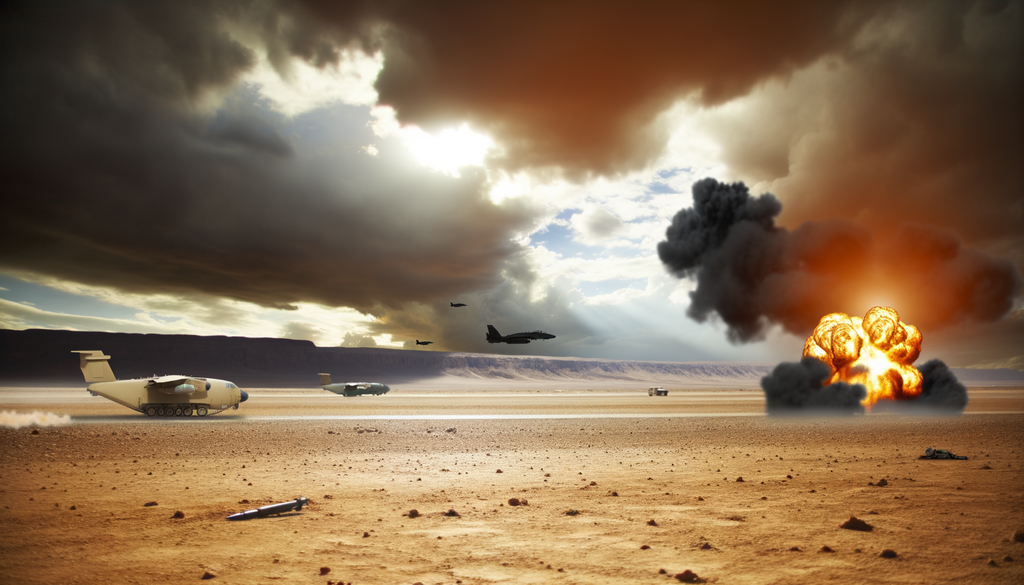Understanding the Escalation: News Israel Iran War and Its Industry Implications
Recent developments in the Israel-Iran war have captured global attention, reflecting heightened geopolitical tensions in the Middle East. At Teknologam Sdn Bhd, we closely monitor these shifts, recognizing their far-reaching effects on global energy supply and regional stability. As the situation unfolds, understanding the motives behind Israel’s military actions and their strategic impact on industries, particularly oil and gas, becomes essential.
Key Takeaways
- The escalation between Israel and Iran marks a significant change in regional security dynamics.
- Energy infrastructure and global oil markets face increased risk due to ongoing hostilities.
- Our industry must brace for potential supply chain disruptions and adapt to geopolitical uncertainties.
The Genesis of the Conflict: Why Did Israel Attack Iran?
The question of why Israel attacked Iran resonates throughout international discourse. Israel cites Iran’s growing nuclear ambitions and support for proxy groups as catalysts. Strategic pre-emptive strikes aim to curb Iran’s capabilities before reaching critical thresholds. Major news outlets, such as CNN, have dissected these motives, revealing a complex interplay of defense and deterrence.
These targeted Israeli strikes focus on military installations and weapon supply routes, intending to diminish Iran’s regional influence without triggering full-scale war. Understanding this strategic calculus is vital for industries dependent on Middle Eastern stability, particularly energy sectors.
- Israel views Iranian nuclear development as an existential threat.
- Proxy conflicts exacerbate tensions beyond direct military confrontations.
- International diplomacy remains strained amid increasing military actions.
Israel Attacks Iran 2025: What the Future Holds
Looking ahead to 2025, projections around Israel's attacks on Iran suggest a continuation of low-intensity conflicts, punctuated by occasional major strikes. The evolution of military technologies and intelligence-sharing capabilities shape Israel’s approach, emphasizing precision and minimization of civilian casualties.
From an industry perspective, such uncertainties compel companies to revise risk assessments, especially regarding supply routes vulnerable to disruptions. Teknologam’s strategic planning increasingly factors in geopolitical risk models reflecting these developments.
"Navigating geopolitical volatility requires constant vigilance, scenario planning, and flexible operational strategies," notes an internal strategist at Teknologam.
Breaking News Israel Attacks Iran: Mapping the Conflict
Breaking news regarding Israel's attacks on Iran often includes critical map analyses that visualize conflict zones and identify strategic targets. Detailed map data helps both policymakers and businesses evaluate risk exposure. Key regions include border areas, missile bases, and key transport corridors.
These maps also illustrate the indirect impact on neighboring countries and maritime routes essential for oil exports. For oil and gas manufacturers like Teknologam, mapping conflict zones informs operational decisions, from logistics to project timelines.
Key Insight: Integrating real-time conflict maps with supply chain data enhances resilience and response times in volatile environments.
Industry Impact: Energy Security and Supply Chain Risks
The ongoing Israel-Iran conflict places significant stress on global energy markets. Iran, as a vital oil producer, faces sanctions and infrastructure damage that may limit exports. Israel’s strikes compound this, risking instability in downstream supply chains.
Given these factors, companies in the oil and gas sector must consider alternate sourcing strategies, diversify supply routes, and invest in early warning systems. Teknologam actively monitors the situation to safeguard operations and support clients navigating these uncertainties.
- Increased risk of oil price volatility due to supply disruptions.
- Strain on pipeline security in conflict-affected regions.
- Opportunities for innovation in remote monitoring and risk mitigation technologies.
Conclusion
The Israel-Iran war is more than a geopolitical conflict; it represents a critical challenge for global industries relying on regional stability. Understanding the motives behind Israel's military actions, following breaking news updates, and analyzing conflict-related map data are essential for informed decision-making. For companies like Teknologam, adapting to these realities is a strategic priority to ensure resilience and continuity in a rapidly changing landscape.
